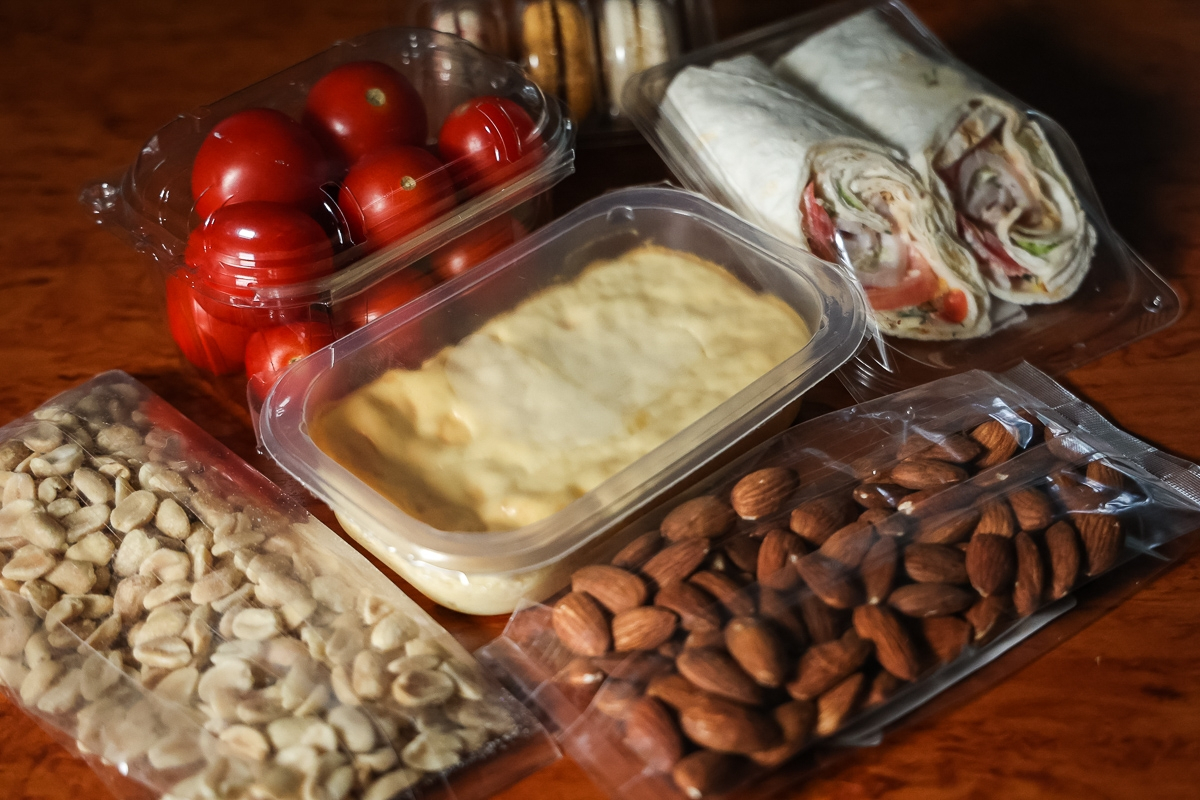St Petersburg University scientists to develop a new type of eco-friendly packaging for food products

Chemists at St Petersburg University have started to develop innovative packaging for products, i.e. a smart biodegradable film made from organic waste. The project is supported by a grant from the Russian Ministry of Science and Higher Education. It will help protect food from the effects of pathogenic microorganisms; display the degree of food freshness; and reduce environmental pollution.
Consuming unsafe foods is among the common causes of health problems. Every year, up to 30% of the world’s population suffers from foodborne infections caused by pathogenic microorganisms that have entered food from the outside during storage, transportation, and sale, said the World Health Organization.
Today, packaging is more often than not made of plastic. It can save food from contact with bacteria and microbes. Among the disadvantages of such containers is that non-renewable resources, e.g. oil, are used to develop them. Additionally, such packaging only protects the product from external contamination. Yet it is does not slow down the internal processes of decomposition and extend the shelf life of food. Plastic bags, films, and containers are not always recyclable and can take hundreds of years to decompose.
The research project ‘Development and study of innovative functional bio-food packaging’ in 2022 became one of the winners in the grant competition of the Russian Ministry of Science and Higher Education for conducting research together with organisations from the BRICS countries. Previously, the project of doctors from St Petersburg University also won the competition of the Ministry of Science and Higher Education.
The work on smart packaging will last from 2022 to 2024. The research is supported by the grant from the Ministry of Science and Higher Education of the Russian Federation. The project brings together the chemists at St Petersburg University; South Africa’s Council for Scientific and Industrial Research (CSIR) (South Africa); the University of Limpopo (South Africa); Mahatma Gandhi University (India); the Federal University of Uberlândia (Brazil); and the Federal University of Triângulo Mineiro (Brazil).
To solve these issues, researchers at St Petersburg University, together with their colleagues from India, Brazil, and South Africa, decided to create a new smart food packaging. The scientists will develop an innovative nanocoating, i.e. an additional edible layer in the form of a film on the surface of food products, as well as customized film (like polyethylene film), said Anastasia Penkova, Professor in the Department of Analytical Chemistry at St Petersburg University. The scientists plan to make the nanocoating and film from an environmentally friendly nanocomposite, which the chemists are currently synthesising.
‘A nanocomposite is a multicomponent material that consists of a polymer base (matrix) and a nanofiller (modifier),’ explained Anastasia Penkova. ‘In this project, the nanocomposite will consist of carrageenan, starch, and nanocellulose with flower extract. These are environmentally friendly resources that are obtained from the remains of agro-food waste.’
A film made of such materials, unlike other ‘smart’ packaging on the world market, will have several useful properties at once. Firstly, it is completely environmentally friendly, since it consists only of biodegradable substances. This packaging does not contain toxins, carcinogens and decomposes without producing a negative impact on the environment. Moreover, its production will help reduce the amount of agri-food and plastic waste on the planet several times.
Secondly, the innovative film will increase the shelf life of products due to antimicrobial properties. Additionally, it will slow down the rate of food oxidation and reduce water loss during storage. The flower extract in the packaging will protect food from chemical contamination and infection by pathogenic microorganisms. It will also prevent harmful bacteria and microbes from multiplying on the surface of the products.
‘Our packaging will be pH sensitive to the environment. In other words, it will identify the process of food decay and change colour when the products begin to deteriorate. Flower extract will also act as a pH-sensitive dye,’ added Anastasia Penkova.

